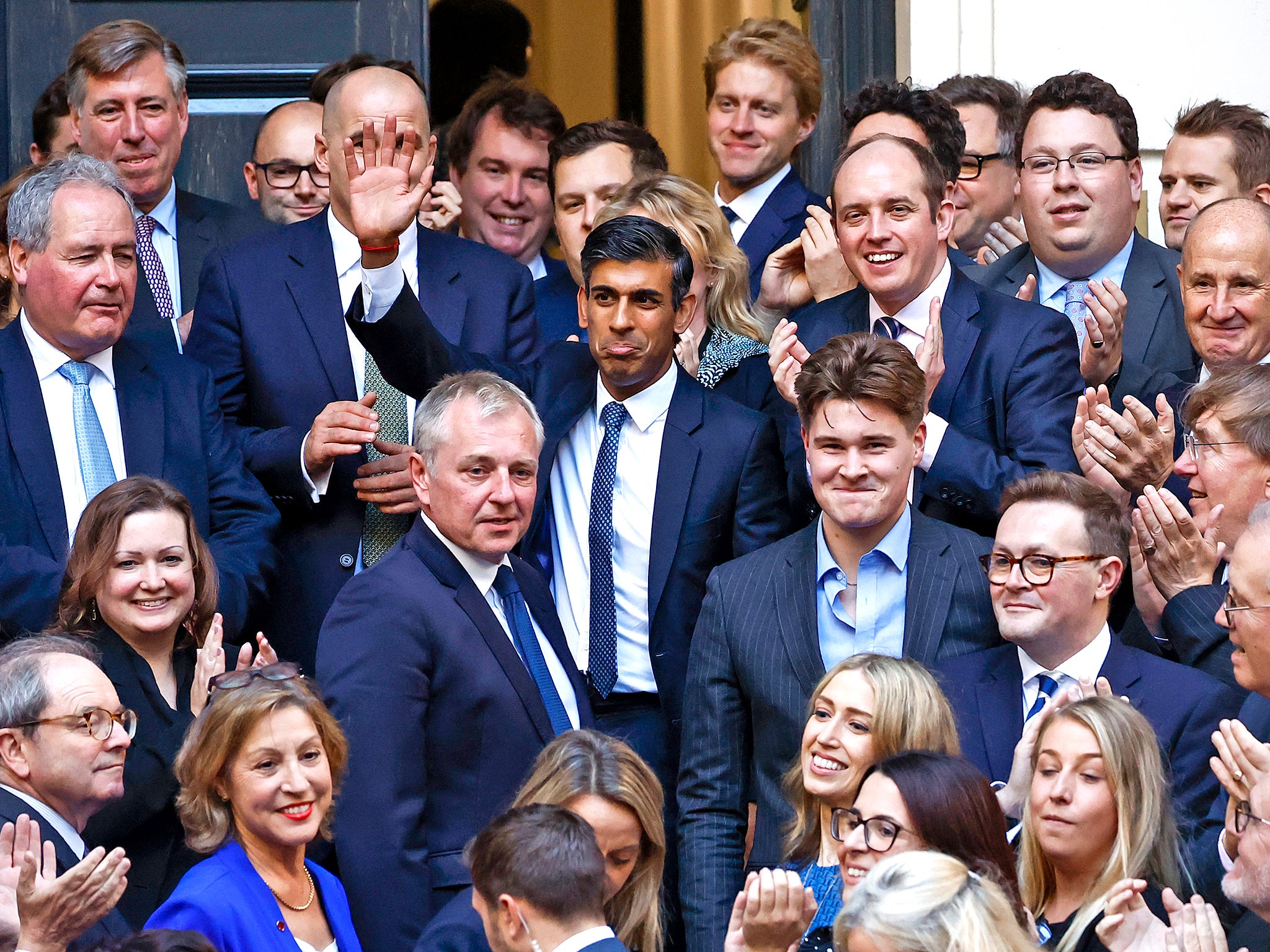What does the exodus of Tory MPs mean for Rishi Sunak?
Dozens of backbenchers are set to quit before the next election. Adam Forrest examines how it may shape the future of the party


Rishi Sunak is only just settling into the flat above No 10, having endured Budget clashes, Brexit rows, backbench rebellions and bullying allegations levelled at his deputy during a tumultuous first month in charge.
But as the prime minister gets his feet under the table, many of his own MPs are already making a dash for the exit door. Officials at Conservative headquarters are planning for a mass exodus of their parliamentarians ahead of the next general election.
Dehenna Davison – star of the 2019 intake of red-wall MPs – shocked Westminster by revealing she will not contest her seat again. Chris Skidmore, Gary Streeter, Chloe Smith and William Wragg have also announced their departure plan this week.
Charles Walker, Crispin Blunt, Nigel Adams and Adam Afriyie had already made clear their intention to quit, and more departees are expected in the coming days after MPs were given a 5 December deadline to tell Conservative Campaign Headquarters (CCHQ) whether they plan to run at an election expected in 2024.
Tory polling expert Lord Hayward said it was “striking” that some relatively young MPs were standing down – predicting a higher-than-normal number of retirements.
Some have predicted as many as 80 Tories may decide to call it quits amid the dire polling and bleak economic outlook, with many MPs in despair about the party’s chances of winning the next election.
So how would dozens of departures affect Rishi Sunak? What does it mean for the party in the run-up to the next election and beyond?
In one respect, a larger-than-usual rump of new candidates will help the PM keep control of messaging. CCHQ will able to select candidates fully on board with the Sunak agenda of fiscal prudence, as he takes the fight to Labour in the period leading up to the general election, expected in 2024.
But fresh faces may be of little use in hard-won red-wall areas in the north of England and Midlands. Reports suggest several more from the 2019 intake are fed-up and fancy following Davison in forging a career outside parliament.
Though polling suggests many of these seats will fall to Labour, it may be an ever more difficult task to keep them without incumbents who have at least been able to champion the levelling-up agenda.
In the meantime, having several dozen retirees on the backbenches could make life awkward for the PM. Those will nothing to lose and one eye on their next career move are more likely to rebel on crucial votes.
Others are already planning for life on the opposition benches. One moderate Tory MP told The Independent that colleagues are now thinking how to avoid a “lurch to the right” if Sunak is soundly beaten by Keir Starmer in 2024.
“Some us who want to stay are thinking about how we shape the party after an election defeat,” said the senior Sunak backer.
If Labour holds onto its hefty poll lead, Sunak looks set to spend only a couple of years in Downing Street. But the fight for Sunakism, whatever that may prove be, could last a little longer.






Join our commenting forum
Join thought-provoking conversations, follow other Independent readers and see their replies
Comments